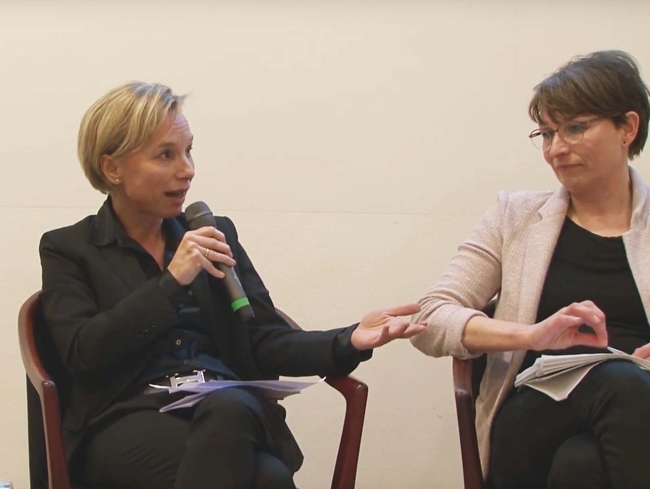28.03.2018 | The Food and Agriculture Organization of the United Nations (FAO) estimates that 60 percent of all recorded stocks have already been fished to their biological limits and around 30 percent have already been overfished. Illegal fishing, climate change and inadequate national and international political and legal frameworks also threaten the oceans.
Experts from marine science, political consulting and environmental protection recently discussed these problems and possible solutions at an event of the Hamburg Academy of Sciences.
The panel discussion focused on these questions: Is mariculture (marine aquaculture) the key to generating more food for humans and to developing new food sources? Can it generate food for fish and shrimp farms? What are the characteristics of sustainable fishing? How can illegal catch, which accounts for a good 30 per cent of global catch, be recorded and prevented? How must national and international political and legal regulations be designed?
Participants:
Prof. Dr. Hildegard Westphal
Scientific Director of the Leibniz Centre for Tropical Marine Research in Bremen and Professor for Geology of the Tropics (University of Bremen)
Prof. Dr. Karin Lochte
Member of the Academy of Sciences in Hamburg and of numerous national and international committees for marine and polar research
Prof. Dr. Rolf-Dieter Heuer
Member of the Academy of Sciences in Hamburg and Member and Chairman of the High Level Group of Scientific Advisors of the Scientific Advice Mechanism of the European Commission
Dr. Gerd Kraus
Director of the Thünen Institute for Sea Fishery in Hamburg
Heike Vesper
Head of International Marine Conservation, WWF Germany - International WWF Centre for Marine Conservation
Moderation: Angela Grosse (science journalist)





